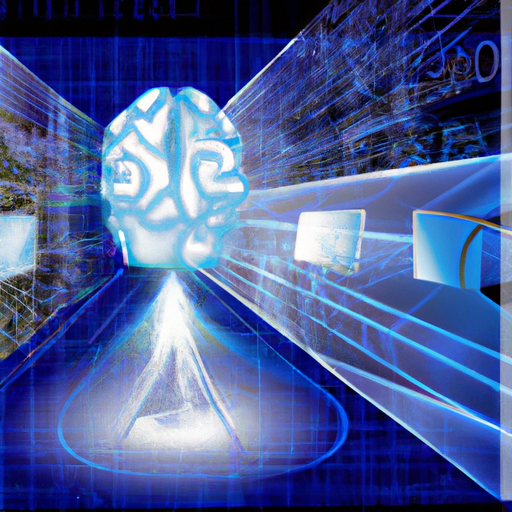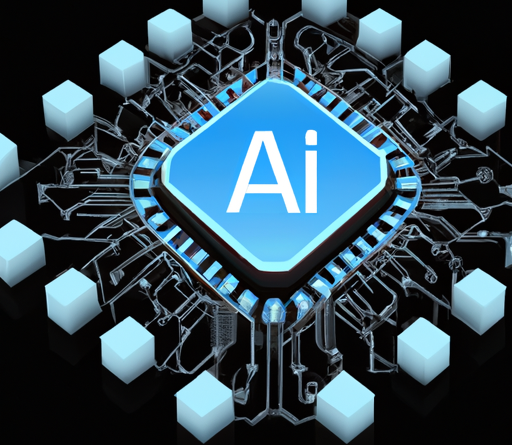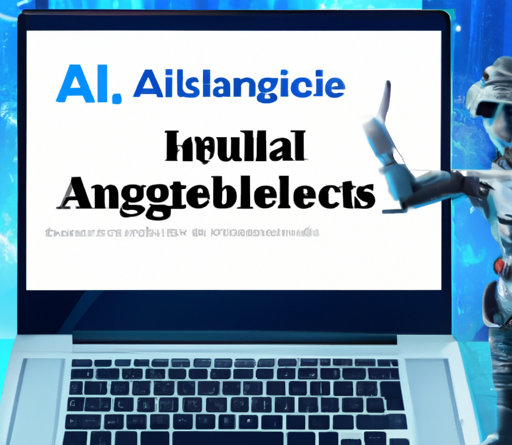
Ever wonder about the ethics of AI-based autoblogging? Well, you’re not alone! It’s a hot topic sparking debates among bloggers, marketers, and tech enthusiasts alike. Today, we’re diving into it. In this article, we’ll delve into autoblogging – what it is and how AI tools can transform the way you create content.
Autoblogging is the use of tools to automatically generate and publish blog posts. Sounds great, right? Imagine being able to create an entire blog while you sleep! Now, let’s introduce AI into the mix. Tools like Aiwisemind have turned this dream into a reality. This software can write all the content for your blog, even when you’re not there. This technology is revolutionary in the world of blogging, and it’s redefining the rules of content creation.
While all this sounds impressive, you might be wondering, “Is this ethical?” Your concern is valid. Considering factors such as authenticity and originality, it’s crucial to critically analyze how this technology is used in autoblogging. Plagiarism and quality control are key considerations. Does an AI-written blog maintain the same quality and integrity as a human-written one? That’s the heart of the ethical question.
As you continue to explore this topic, bear in mind that AI is not inherently unethical. It’s about how it’s used that truly matters. This article further discusses the ethical implications of AI-based autoblogging, offering you a comprehensive understanding. By the end, you’ll have a clearer perspective on the ethics of autoblogging.

Table of Contents
Understanding Autoblogging
Defining Autoblogging
Surely, you’re one of those people fascinated by the world of blogging, and perhaps you’ve even queried the term ‘autoblogging’ in your web browser. Autoblogging, also known as automated blogging, involves creating a blog where posts are updated automatically using content from RSS feeds or other source websites, saving you the hassle of writing every blog post by hand.
Common Uses and Applications of Autoblogging
With autoblogging, you can create niche blogs or websites to promote products, run content networks, or generate passive income through ad revenue. Autoblogging has been used in many areas including news aggregation, social feeds, affiliate marketing, and e-commerce.
Advantages and Disadvantages of Autoblogging
Autoblogging saves time and reduces the effort needed for content generation. It enables scalability and consistent updates. However, it also has its disadvantages such as duplicate content penalties from search engines, and content quality control. A blog’s credibility may also wane as some readers prefer personal experiences penned from real human thoughts and emotions.
AI in Autoblogging
Integration of AI in Blogging
Whether you acknowledge it or not, Artificial Intelligence (AI) has made its entry into blogging. Advanced algorithms enable AI to generate human-like content based on specific parameters. AI blogging tools help in keyword analysis, SEO optimization, content creation, editing, and even scheduling blog posts.
Role of AI in Content Generation
The primary role of AI in content generation is to help bloggers create content easily and quickly. It can analyze vast amounts of data, draw insights, and create content that is rich, informative, and relevant.
Analysis of AI Software for Autoblogging like Aiwisemind
AI software like Aiwisemind revolutionizes the world of autoblogging. It can generate articles, update blogs, and schedule posts with human-like intelligence, reducing manual intervention drastically.
The Ethics Behind AI-Based Autoblogging
Understanding the Ethical Implications
AI-based autoblogging raises several ethical questions. While it greatly reduces human effort and saves time, it blurs the line between human-created and AI-created content.
Effects on Content Originality
Some critics argue that AI-generated content lacks originality since it is essentially created by machines. While AI can replicate human writing styles, it cannot duplicate the unique thoughts and experiences of humans.
Impacts on Human Labor
AI in autoblogging might reduce the demand for human bloggers and editors. On a positive note, it can free up time for human bloggers to focus on research, conversations, and creating deeper connections with their readers.
Assessing the Risk of Misinformation
Because AI-generated content relies on algorithms and data inputs, the risk of misinformation is substantial if inputs are skewed or biased. Therefore, human supervision is crucial to prevent potential mishaps.
Opinions from the Industry Experts
Comments from AI Specialists
AI specialists advocate for AI-based autoblogging, citing its efficiency and potential to analyze vast amounts of data accurately and quickly. They stress that the goal isn’t to replace human bloggers, but to assist them in creating better content.
View Point of Bloggers and Content Creators
Many bloggers and content creators are apprehensive about the growth of AI-based blogging. These concerns center around the lack of creativity and emotional impact, the core of blogging.
Industry Leaders on AI’s Role in Autoblogging
Industry leaders opine that while AI cannot replace human blogging, they believe it is a valuable addition for administrative and data-oriented tasks, providing more time for bloggers to focus on creativity.

Case Studies of AI-based Autoblogging
Analysis of Successful Cases
Successful case studies of AI-based autoblogging include businesses using AI blogs for product descriptions, industry news, and monthly reports. AI blogs have shown to be a cost-effective method for regular blog updates.
Review of Unsuccessful Cases
Unsuccessful uses of AI blogging primarily relate to the creation of repetitive, shallow content that lacks authenticity and relatability, resulting in poor engagement.
Evaluating the Long-term Sustainability
Adoption and development of AI tools could be a practical way forward for the future with human supervision to ensure the content’s relevance and accuracy.
Regulations and Policies Regarding AI-based Autoblogging
Understanding Current Laws
Currently, no specific laws govern AI-based autoblogging. Given the pace of AI development, policymakers are exploring regulations to prevent misuse.
Evaluating the Need for New Regulations
There’s a growing need for guidelines regarding intellectual property rights, privacy, and misinformation for AI-created content.
Analyzing Potential Policy Implications
Policies can help ensure the ethical use of AI in blogging, protecting both creators and consumers.
AI Versus Human Bloggers
Comparing Quality of Content
While AI content can be factual and well-structured, human content has an emotional appeal that AI struggles to replicate.
Assessing Time Efficiency and Productivity
AI bloggers score high in efficiency and productivity, with the ability to generate content quickly and in large volumes.
Discussion on Creative Input and Personal Touch
AI lacks personal experiences and emotions, which form the heart of personal blogging.
The Future of Autoblogging with AI
Predictions regarding AI’s Role in Autoblogging
AI is predicted to gain more prominence in autoblogging, offering assistance, and improving efficiency while maintaining a balance with human input.
Possible Advancements in Technology
Future AI technology could enhance its language processing and creativity, potentially mimicking human-like writing even better.
Future Ethical Issues to Consider
Future ethical issues might include plagiarism, privacy concerns, and the misuse of AI-generated content.
Alternatives to Autoblogging
Looking at Alternate Blogging Techniques
Traditional blogging, guest blogging, and collaborations are alternatives to autoblogging that continue to hold relevance.
Incorporation of AI in these Techniques
AI can still play a supportive role in these alternative blogging techniques, aiding in SEO, keyword research, and readability checks.
Comparing AI-based Autoblogging with Alternatives
While AI-based autoblogging excels in efficiency and scalability, it falls short when it comes to originality, emotional impact, and authenticity.
Conclusion
Summarizing Ethical Dilemmas of AI-based Autoblogging
AI-based autoblogging raises ethical questions around content originality, job displacement, and misinformation. Balancing technological advancements with ethical considerations is critical.
Reflecting on Expert’s Opinions
Considering various perspectives, it is appropriate to conclude that AI-based autoblogging is not a threat, but a tool with immense potential if used ethically and effectively.
Transitioning from Ethical Concerns to Future Improvements
As we embrace AI in autoblogging, it is essential to consider the potential shortcomings and challenges, but also the scope for future improvements. Acknowledging and addressing the ethical concerns helps us channel the benefits of AI to revolutionize autoblogging, creating a balance between human creativity and AI efficiency. AI is here to stay, it’s up to us how we make the best out of it.









